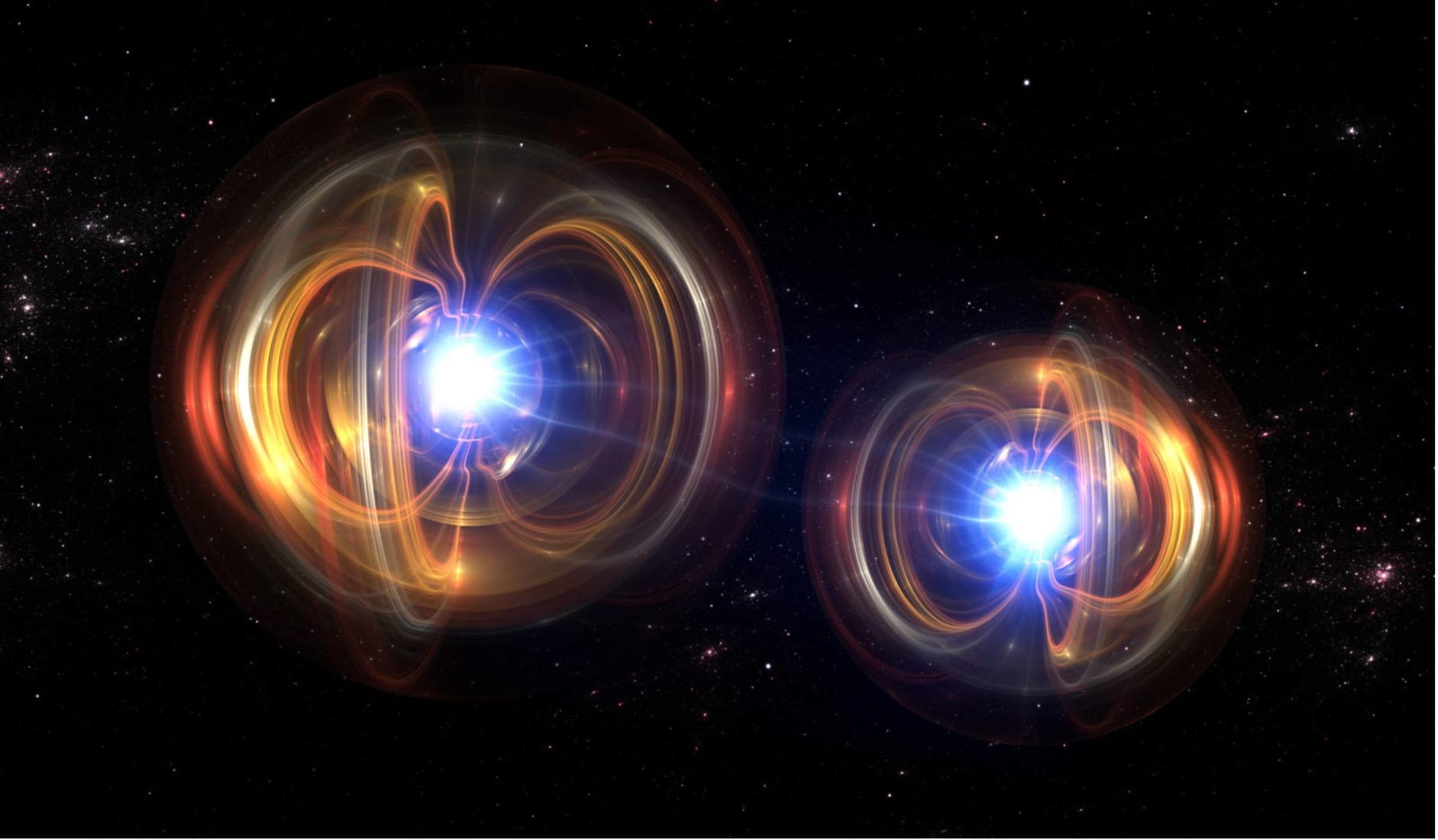
6 minute read
On the Philosophy of Quantum Theory - Hyunjo Kim
from Serpentes Issue 6
Introduction
When the idea of quantum mechanics first emerged in the early 20th Century, there was not much consensus among physicists about the interpretation of it. Although there are fundamental mathematical formalisms of quantum mechanics, they are uninterpreted and have many philosophical problems. These include the issue of quantum nonlocality, the ontology of quantum states, and the way we understand the structure of space-time. A lot of these propositions troubled Einstein and the view of an ‘ob jective reality’, which contradicted the dynamical degrees of freedom and probability of quantum theory; he famously wrote to Max Born that he is convinced that ‘[God] does not play dice’. Einstein, Podolsky, and Rosen went on to formulate a paradox concluding that the ‘wave function does not provide a complete description of the physical reality’, which considered a realist’s approach to quantum mechanics. However, there was another school of thought, with physicists such as Niels Bohr who believed in the epistemic theory of the quantum world. Despite empirical evidence, the underlying basis of quantum states remains to be debated upon. It is impossible to truly posit a philosophical definition of our physical reality based on quantum theory. No one can really understand quantum mechanics, however, this discussion will close in on the methodology to address its issues.
The EPR Paradox: nonlocality and physical systems
The EPR Paradox examines a physical system of a pair of entangled particles. The criterion was provided: ‘If, without in any way disturbing a system, we can predict with certainty (i.e., with probability equal to unity) the value of a physical quantity, then there exists an element of physical reality corresponding to this physical quantity.’ In other words, a physical reality only exists if the initial state of the system has a ‘hidden variable’, which would explain the random measurement results. This is called local realism; each element, each particle in this entangled system is predetermined when it first interacts. Most importantly, the EPR paradox did not contradict the theory of relativity. The fundamental assumption on which the EPR paradox lies on is the principle of locality. However, the EPR paradox does not reject the idea of quantum mechanics at all, but it firmly states that quantum mechanics is not a complete description of physical reality. It concluded that some physical characteristic of each particle (electron and photon) must determine how it behaves under different experimental conditions. In other words, knowledge of our physical reality through quantum mechanics is flawed and faulty. However, Niels Bohr pointed out that the ‘peculiar individuality of the quantum effects that presents us, as regards the comprehension of well-defined evidence, with a novel situation unforeseen in classical physics and irreconcilable with conventional ideas’.
Resolving the paradox: J.S. Bell
Approximately 30 years later, John Bell proposed an experiment in which any local realistic theory would contradict the predictions made by quantum mechanics. Instead of an ontological approach by the EPR paradox, Bell focused on the influence and the causality of the factors that are involved with locality. As pointed out by his paper, “On the Einstein Podolsky Rosen paradox”, Bell states that the ‘statistical predictions of quantum mechanics are incompatible with separable predetermination’. Bell’s theorem shows
us that there is no theory that can meet the conditions of the Bell inequality and can also reproduce the statistical nature of quantum mechanics. Therefore, when Aspect, Grangier, and Roger tested Bell’s inequality, quantum mechanics was experimentally confirmed and realist theories were ruled out. From this, we learn that nature itself is fundamentally nonlocal; however, one must not assume that there is a causal influence. Yet, Bell’s theorem provides us with the boundaries of our knowledge and our existence, which leads to no logical paradox.
Ontological issues in quantum mechanics
In quantum mechanics, there are sets of quantum states. The important question is whether these quantum states represent a physical reality. Einstein believed that the two-measurement complication would help him to ‘beat’ the uncertainty principle by showing that when the momentum is known the coordinate would have no physical reality, thus the theory must be incomplete, and purely epistemic. Harrigan and Spekkens (2010) elaborate on this matter by demonstrating how the principle of locality can be held where is given ontic status. Before examining this issue, it is important to acknowledge when a quantum state is considered to be ontic or epistemic. In Harrigan and Spekkens’ paper, this is how they define these two distinct models: ‘We call a hidden variable model -ontic if every complete physical state or ontic state in the theory is consistent with only one pure quantum state; we call it -epistemic if there exist ontic states that are consistent with more than one pure quantum state’. The epistemic theory is a representation of the observer’s reality rather than reality itself. The significance of this work is that it helped us gain more understanding about distinct quantum states and the physical reality it corresponds to. Using the classification of this paper, the PBR Theorem was established, which proved that either the quantum states are -ontic, or nonentangled quantum states would violate the assumption of preparation independence. This no-go theorem showed that ‘models in which the quantum state is interpreted as mere information about an ob jective physical state of a system cannot reproduce the predictions of quantum theory’. This itself is not a complete theorem; the assumptions and the framework of this argument could be easily rejected.
The Wavefunction and Collapse Theories
One of the most fundamental aspects of quantum theory is the wavefunction. The nature of quantum mechanics and its dynamics have been represented by deterministic equations or stochastic ones, in which the initial state can evolve into multiple different states. Schrödinger’s equation quite successfully reflects the ‘quantum recipe’. The philosophical problem arises with the involvement of Born’s rule. The reason is that it does not specify in which physical circumstances it applies to and what happens to the wavefunction of that certain system. Normally, Born’s rule is usually used for position measurements or in different observable properties as well. In fact, the ‘measurement’ is an unclear idea; although it is often described as the collapse of the wavefunction, without a proper definition, we do not completely know how to apply it or what is applicable. The ‘measurement problem’ could be redirected to experimental characteristics, such as collapse theories. For example, the GRW theory suggests that the collapses occur randomly with no environmental trigger, eradicating the need for an understanding of a measurement. The ontological status of this theory is based on point events that are scattered through space-time, so electrons will have its wavefunction, but there will be no full physical space which signifies their
existence.
Commentary
In this discussion, I have not fully included all aspects of quantum theory. Yet, I do not think it is necessary for I believe that quantum theory is uninterpretable. Although I have not mentioned the Copenhagen interpretation or the Many-Worlds interpretations in the collapse theories section, one thing that is clear through close examination is that there is no single philosophical way to avoid assumptions. It can often be confusing when reading through the different sections which seem to contradict each other, but this is the behaviour of quantum theory. A complete theory is composed under three conditions: the basis of assumption follows the theory itself and possible evidence, held in different approaches and observers with no colliding interpretations, and there must be formal deduction and truth in every structure of the theory i.e., every variable assignment. The complexity of quantum theory suggests that it is impossible to meet this criterion. However, it is possible to redefine quantum theory philosophically into a ‘mixture’ of theories based on observables, ontology, measurement, nonlocality, and epistemology.











